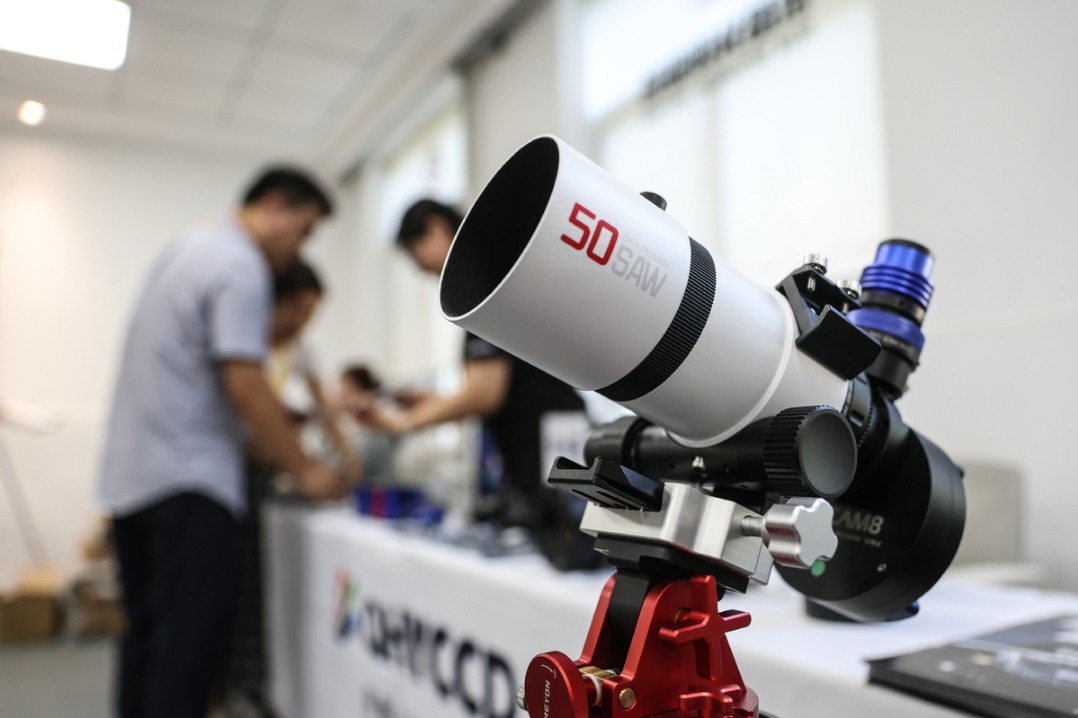Healthcare firm sues customer who ripped service

A leading private Chinese healthcare provider has filed a defamation lawsuit against a customer for spreading allegations about flaws in its health checkup services, stressing that routine annual examinations cannot replace clinical diagnoses for specific diseases such as cancer.
IKang Healthcare Group, which provides annual checkups for more than 8 million people each year, held a news conference on Wednesday in response to widely circulated social media posts from a Beijing lawyer questioning the effectiveness of its services.
The lawyer, surnamed Zhang, wrote in mid-July that she was diagnosed with late-stage kidney cancer that had spread to her spine in October, despite undergoing health checkups for 10 consecutive years at the company since 2013.
Zhang said her 2023 health check report noted kidney calcification, but company personnel reassured her at the time that the condition was normal and required no intervention. She also said her carcinoembryonic antigen test results — a marker sometimes elevated in people with certain cancers — had shown normal readings for years.
Zhang said she has sent a legal letter to the company, demanding it turn over her blood samples and testing data over the past decade, as well as certificates of its carcinoembryonic antigen test equipment and information about the laboratory workers who conducted the tests.
Zhang said she underwent nine months of treatment overseas, lost a kidney and now has lifelong spinal problems.
IKang said internal and external reviews found no medical oversights, diagnostic errors or fraudulent testing as claimed by Zhang.
"Zhang shifted her personal accountability for failing to undergo timely follow-up examinations into a systematic critique targeting the company," it said in a statement.
Li Xiuchi, a senior manager at the company and former physician at China-Japan Friendship Hospital, said Zhang's 2023 medical report had flagged a potential kidney tumor and recommended further tests.
Wang Zhaohui, iKang's vice-president and a medical expert, said that early detection of kidney tumors relies primarily on imaging rather than blood tests. He noted that CEA testing is mainly used to evaluate the risk of digestive cancers, such as colorectal cancer, and that there is currently no widely accepted blood-based biomarker for kidney cancer.
China reports more than 4.5 million new cancer cases annually, with lung, colorectal, gastric, liver and breast cancers being the most common. About 70,000 new cases of kidney cancer are reported each year, according to official data.
Zhang Ligang, chairman of iKang, said the company identifies about 15,000 cancer cases annually through routine health checks. However, he emphasized that basic physical examinations, which typically cost several hundred to a few thousand yuan, are fundamentally different from clinical diagnostics that can cost tens of thousands.
"The purpose of routine checkups is to detect early warning signs so that individuals can then seek specialized care," Zhang said. "This model applies to both private health centers and public hospitals."
IKang said a court is handling the lawsuit.
- Smell of good vibes
- National Games — A force to boost integration, shared sense of identity
- Being human
- Beijing clears all flood-damaged county-level or higher roads
- 'Joint Sea-2025' exercise enhances strategic partnership between China, Russia
- Xi, Nepalese president exchange congratulations on 70th anniversary of ties





































